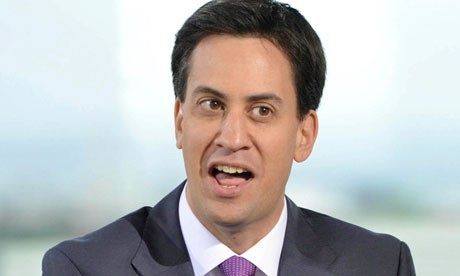Labour leader Ed Miliband has been heaped with ridicule after suggesting that Eurosceptics were endangering the people of Britain by putting the country at increased risk of terrorism. Critics have pointed out that membership of the EU has in itself made Britain less safe, whilst others accused him of making political capital out of the Paris attacks of last week.
Mr Miliband’s remark came during a question-and-answer session with voters in Stevenage, just north of London, the Express has reported. Urging voters to consider the possible advantages of EU membership, he said “Think about terrorism and counter-terrorism. We are much better working across borders to do that.”
A senior Labour Party aide has since confirmed that Miliband believes that the Paris attacks have strengthened arguments for Britain staying within the EU, saying: “It’s certainly his belief that security is one of the issues where working across the EU shows its obvious benefits.”
The source continued: “We all remember from 7/7 that the European arrest warrant (EAW) played a vital role in bringing those suspects back to Britain. The EAW has been a very useful tool in dealing with security issues since it was introduced.”
When quizzed on whether politicians who advocated leaving the EU were putting Britons at risk, the aide said “I wouldn’t back away from that interpretation. I think security is an important part of what the EU does.”
The comments have led Diane James, Ukip’s Home Affairs Spokesman to question “What planet is Ed Miliband on?”
She said: “Unrestricted movement within the EU means that Britain’s national border is now effectively with Turkey which is being used by a great number of jihadists for access into Syria
“In fact Miliband backs Turkey’s accession into the EU which would extend the EU frontier even further to the ISIS controlled parts of Iraq and Syria.”
To the contrary, she argued that “regaining proper border control by exiting the EU would be the clearest first step towards protecting our society by enabling us to monitor and control exactly who is coming into the country.”
Luke Stanley, of the cross-party Eurosceptic campaign group Get Britain Out slammed Miliband for the insinuation, saying: “Ed Miliband’s attempt today to make political capital out of the Paris shootings is beneath contempt, but, unable to make a coherent argument for Britain’s remaining in the EU, stooping this low is the only option for the Europhiles.”
He argued that terrorism “is a global issue which will be overcome by co-operation between sovereign states across the globe, rendering Britain’s membership of the EU redundant in the fight against extremism. If anything, the imposition of EU integration on a reluctant European population is somewhat to blame for the rise of extreme political parties across the Continent.
“This is hardly a ringing endorsement of the EU’s role in safeguarding peace in Europe and the quicker we are able to Get Britain Out of the EU, the better,” he concluded.
Miliband’s critics also highlighted the unwillingness of the Labour leader to offer a referendum to the people of Britain on the question of EU membership.
Matthew Elliott, chief executive of pro-referendum group Business for Britain, said: “It’s pretty distasteful to insinuate that Britain’s security would be put at risk by holding an EU referendum. A referendum is our best bet at securing lasting reform in the EU.
“If Ed Miliband is against giving people a say on Britain’s membership of the EU, then he should be honest with the public about his reasons why. He certainly shouldn’t try to scare them at a time when we need a grown-up debate about the serious threats to our national security, not hot air from politicians.”
Diane James was in agreement, saying “The challenge to Ed Miliband and Labour is to allow the British public to express its view, by supporting an EU referendum to bring back control to the UK and our national government, not that in Brussels.”
Yet far from putting the possibility of a “Brexit” on the table, Labour have instead signalled their intent to forge greater links with the EU in the event of a Labour victory at the next election. Shadow Foreign Secretary Douglas Alexander has confirmed: “From day one in office, a newly-elected Labour government would set about enhancing the UK’s influence in Europe and reset relations with other EU leaders after five years of David Cameron’s failed approach.”

COMMENTS
Please let us know if you're having issues with commenting.